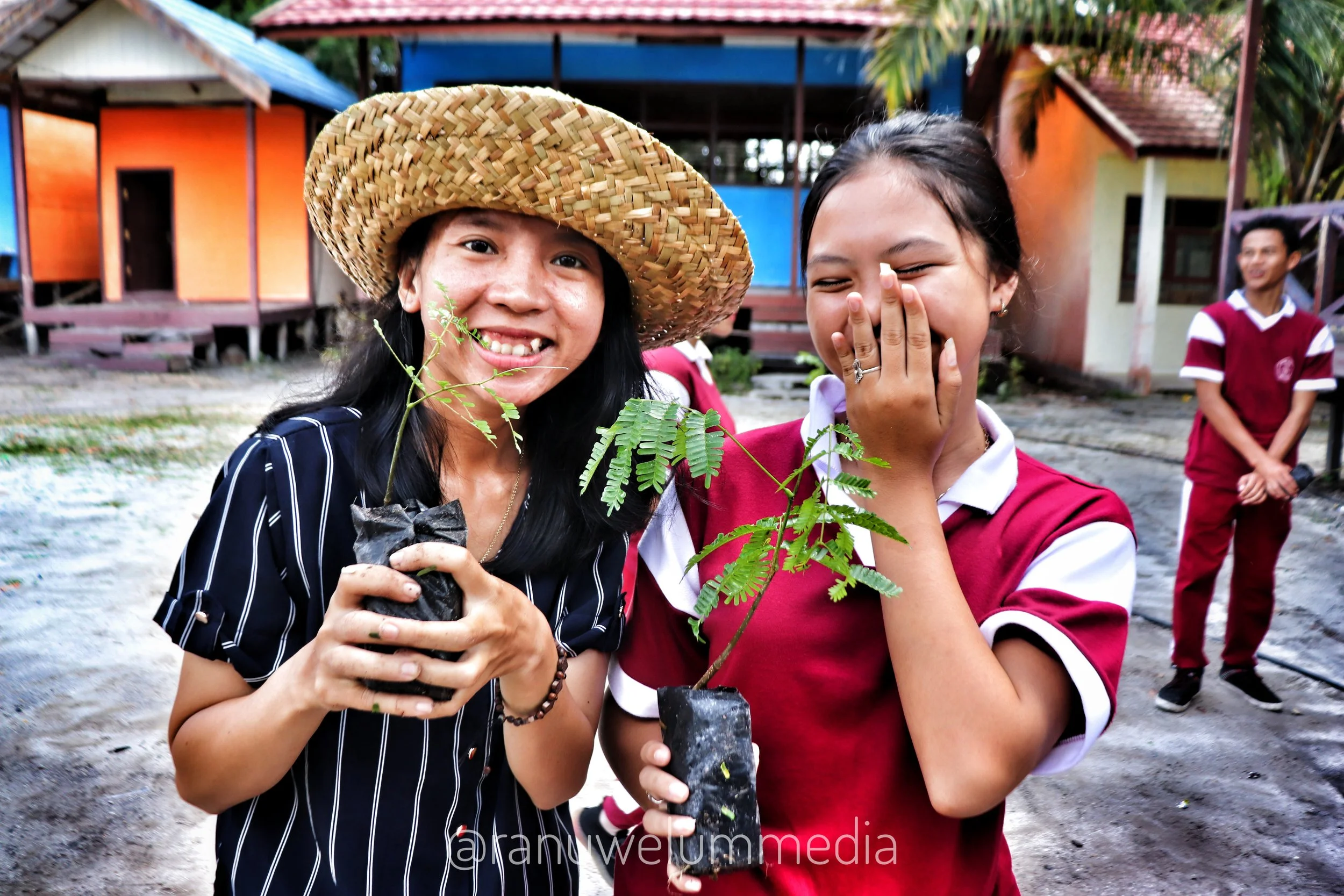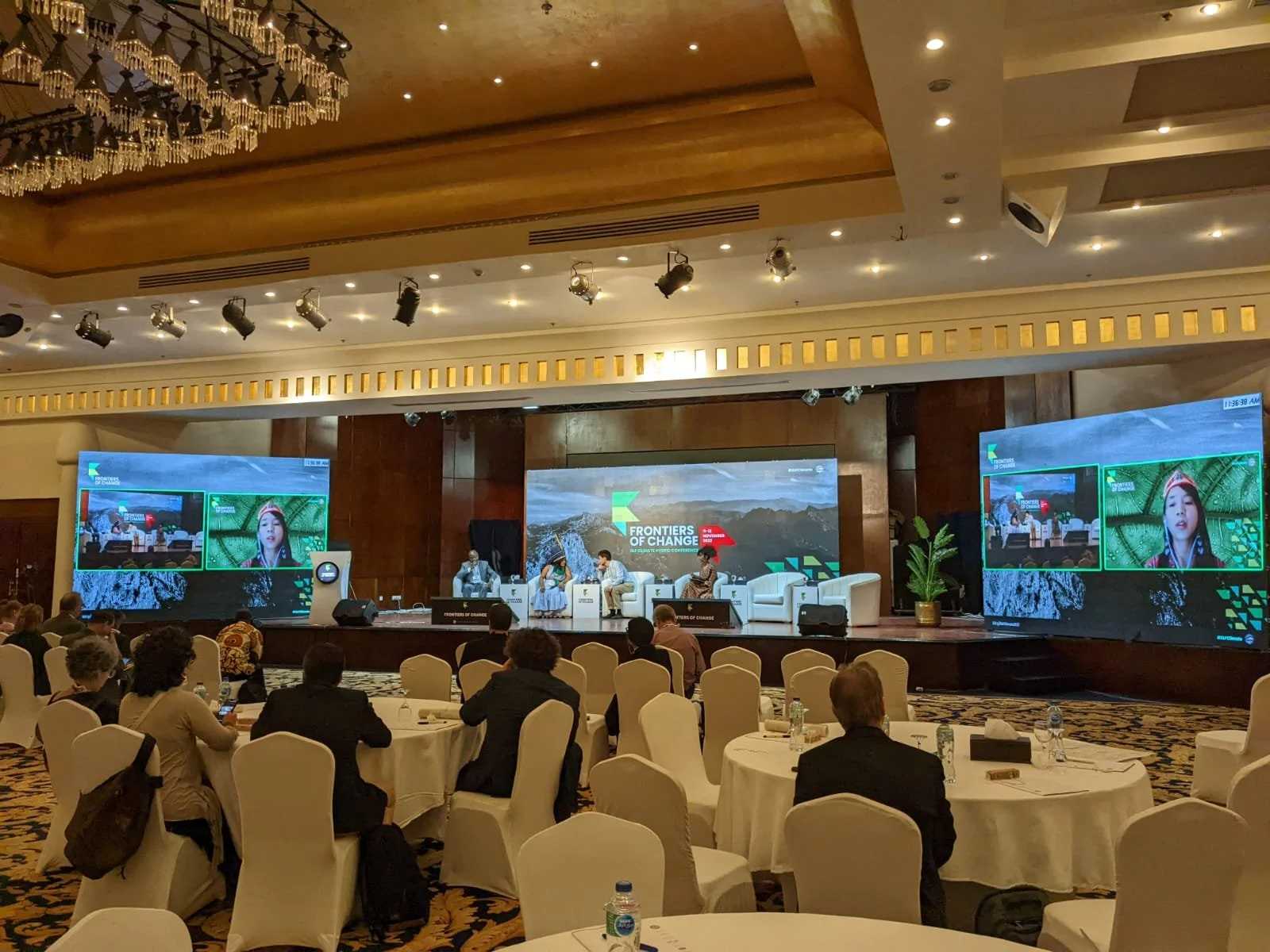In my Indigenous Dayak community in Kalimantan island, Indonesia, we have a culture that we call 'Handep' or translated as 'work together to help each other. We usually practice Handep when a community member has an event in his house or wants to open land for farming. Everyone will help him by giving their energy, money, or food. We have a strong sense of togetherness. And I believe this is one of the most important foundations for our community's climate adaptation.
Currently, we are facing numerous ecological disasters driven by climate change and the exploitation of our natural resources for coal, palm oil, and timber. Devastating forest fires and flooding have become annual issues in my hometown Kalimantan Indonesia. However, during this difficult time, I see the true meaning of Handep. I witnessed how my community came together to help each other, restore and protect the ecosystem. When forest fires blaze, many indigenous and local communities stand in the frontline fighting back the fires with simple machines and their unique technique of making canal fire blocking. And frequently they use their own money to buy the machine and gasoline.
Fighting fires, particularly peat fires that burn underground, is extremely difficult. I know this because, like many other young people, I was on the front lines of the fire relief mission in Borneo during the devastating forest fire in 2019. We did everything we could. Every day, we assist in the distribution of masks to affected areas, fight fires alongside local firefighters, and provide free medical care in rural areas.
After the fire, we restore our forest with endemic tree species. Although indigenous peoples work in silence to address fire and climate change issues. They frequently blamed us for causing forest fires because we have a slash-and-burn tradition. However, slash and burn is our unique method of fire control because it creates frequent small burns that can prevent inconsistent intent big fires and to encourage forest regeneration.
We do understand the ecological process. We have our unique traditional knowledge in understanding nature, but many times people misunderstand our culture. Forest for us is very important, we not only see forest and trees as a source of money or food.
we see our history that connect us to our ancestor
we see our future
we see the life, life of the bird, life of orang utan, life of medicine
we see the connection
I think understanding the forest and building connections to the land can drive people to do more to protect the forest. And this is what we do to engage more indigenous youth to join our force in forest restoration.
Therefore I think, when we talk about what we should do to engage more communities in Climate action I think first we have to make an equal partnership with the community to make us as an actor not a o of any project. So they employ their knowledge and wisdom into action such as reestablishing fire as a natural process, not only Recognising Indiegnous knowledge but truly apply it.
And second I want to ask for your support for many silent grassroots movements. Many frontier communities need additional funding to continue protecting their forests and adapting to climate change. Your contribution will enable them to do more, such as purchase more water machines to extinguish fires, buy more tree seedlings, and monitor the forest for illegal loggers.
Sumarni Laman’s speech at GLF Climate Opening Plenary.


